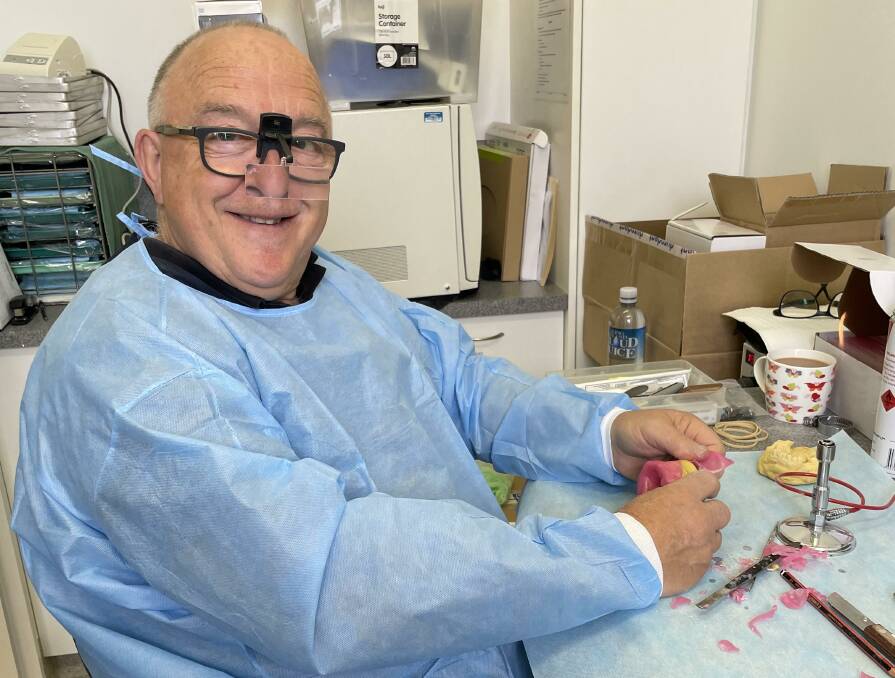
A pair of Launceston based dental health professionals have postponed their retirement to assist the Royal Flying Doctor Service in delivering essential care to one of Tasmania's most remote communities.
Subscribe now for unlimited access.
$0/
(min cost $0)
or signup to continue reading
About 80km off the North-West coast of Tasmania, in the middle of the Bass Strait, King Island is isolated, not just by distance, but geographically.
Working to improve services on the island was dental prosthetist Russell Brownlie and his wife and dental assistant Meg Oliver.
READ MORE: Warning over scam COVID-19 text message
After working in dental prostheses for over 50 years, Mr Brownlie and Mrs Oliver said residents on king island were faced with significant limitations when it came to accessing dental care.
"For a patient or for a resident over there to get dental treatment they rely on a visiting dentist,'' Mrs Oliver said.
"If they need urgent care, they need to fly off-island and add the cost of the airfare to get off the island to their dental bill."
As part of the RFDS Mobile Dental Care service, Mr Brownlie and Mrs Oliver, along with other dental health professionals, fly to King Island each month, providing treatment for the residents.
Mrs Oliver said due to limited access residents would suffer through the pain and discomfort that the service was now addressing.
"Because they didn't have a dentist on the island they would put up with the pain and put up with decayed teeth, but to have a dentist go once a month and do all the restoration work or extractions and get them dentally healthy - it's just phenomenal," she said.
After the structural work had been completed by a dentist, Mr Brownlie and Mrs Oliver set to work creating partial or full prosthetic.
Mr Brownlie said the value of a prosthetic was a mixture of form and function, ensuring the patient's quality of life was restored to its fullest extent.
"Good oral health is so important to good general health and we've had patients who have had such poor dental health it's reflected in their general and physical health," he said.
"We had one person that was basically on soft food and drinking through a straw that can now actually eat proper food."
Mrs Oliver said for patients whose teeth were restored or received a prosthetic, the improved functionality was life-changing, but the cosmetic and social benefits were equally significant.

A 2019 report by the Grattan Institute found poor oral health had painful and costly consequences and could lead to other health problems, including diabetes and heart disease.
READ MORE: A guide to what's on this New Year's Eve
RFDS chief executive John Kirwan said access and transport were two of the most common barriers to accessing dental services, while cost also significantly impacted access.
He said across the state the RFDS had seen 4543 patients across 12,219 visits since May 2017, with patients receiving 16 treatments on average.
He said May 2022 would mark the fifth year of the federally funded program which had provided dental care for children, adults and aged care facilities right across the North of the state including on King and Flinders Islands.
Andrew Chounding is The Examiners Health Reporter, if you have a health-related story please email Andrew.chounding@examiner.com.au
Our journalists work hard to provide local, up-to-date news to the community. This is how you can continue to access our trusted content:
- Bookmark www.examiner.com.au
- Make sure you are signed up for our breaking and regular headlines newsletters
- Follow us on Twitter: @examineronline
- Follow us on Instagram: @examineronline
Follow us on Google News: The Examiner



